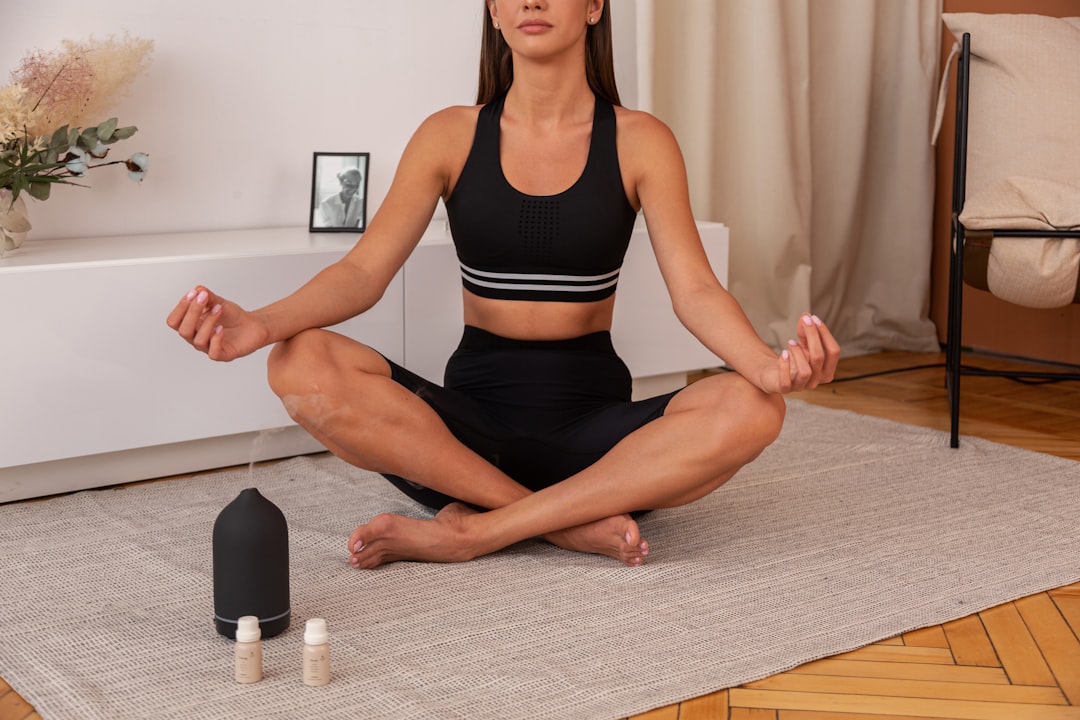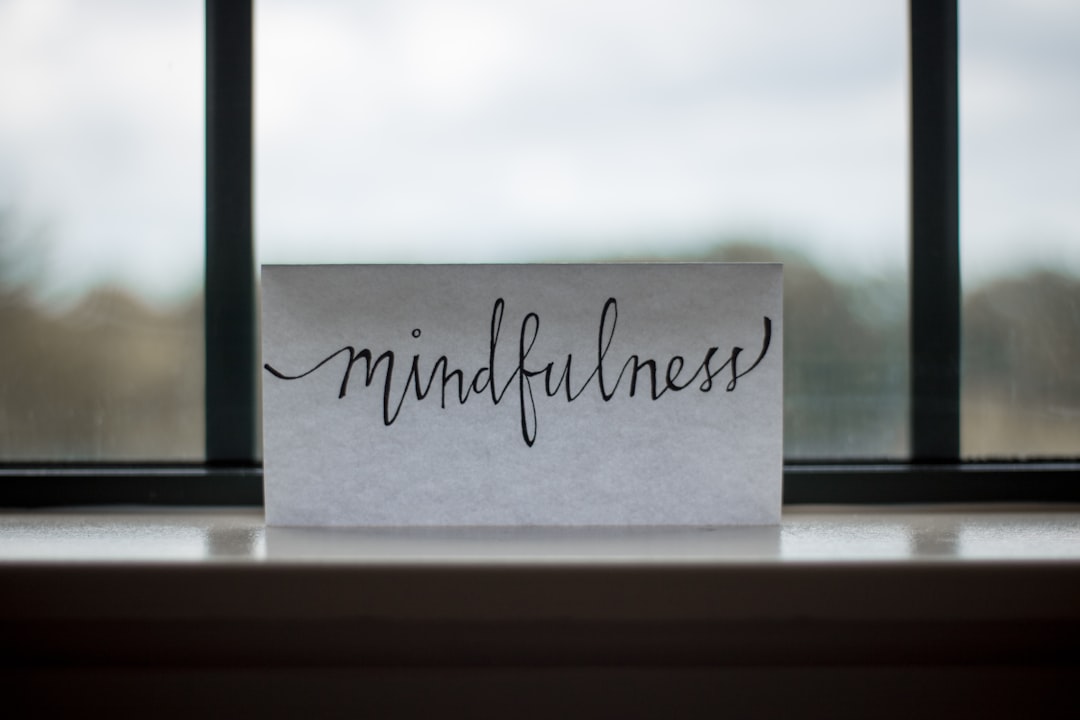Mastering Stress: The Path to Lower Inflammation and a Healthier Life
Stress has become a relentless companion for many, sneaking into every corner of modern life. Its impact, however, goes far beyond restless nights and fleeting moments of anxiety. Chronic stress has a profound and lasting effect on the body, fueling inflammation and quietly eroding health from within. Left unchecked, this silent process can manifest as debilitating conditions, from heart disease and diabetes to autoimmune disorders.

Yet, amidst the chaos of stress, there lies a powerful antidote: mindfulness and relaxation. These ancient practices, now backed by modern science, offer a proven path to mastering stress and reclaiming control over your well-being. Through intentional awareness and purposeful relaxation, the body begins to heal, and the markers of inflammation recede.
This journey to mastering stress isn’t just about fleeting calm; it’s about rewiring how your mind and body respond to life’s pressures. As you delve into the science, real-life success stories, and actionable strategies that follow, you’ll uncover how mindfulness and relaxation can transform your health from the inside out. The goal isn’t merely to manage stress—it’s to master it and emerge stronger, healthier, and more resilient.
The Hidden Connection Between Stress and Inflammation
Mastering stress requires understanding the profound ways it impacts the body, particularly through the link to inflammation. Chronic stress initiates a cascade of physiological responses that disrupt the body's delicate balance. When stress becomes persistent, it activates the hypothalamic-pituitary-adrenal (HPA) axis, flooding the body with cortisol and other stress hormones. These chemicals, while helpful in short bursts, wreak havoc when elevated over time.
Prolonged stress primes the immune system to overreact, triggering the release of pro-inflammatory cytokines. These molecules are designed to help the body heal during acute threats, but when overproduced, they contribute to chronic inflammation. This silent inflammation is linked to diseases like diabetes, heart disease, and even depression.
Mastering stress involves breaking this harmful cycle before it deepens. By learning to regulate the body's response to stress, inflammation can be controlled. Reducing inflammation isn’t just about physical health; it restores mental clarity and emotional stability. The more we understand this hidden connection, the more empowered we become to protect our well-being.
Mindfulness as a Weapon Against Stress-Driven Inflammation
Mastering stress begins with mindfulness, a practice that transforms how the brain perceives and reacts to challenges. Mindfulness promotes present-moment awareness, helping individuals step back from overwhelming emotions and automatic stress responses. This shift in perspective rewires neural pathways, reducing the intensity of the fight-or-flight mechanism.
Chronic stress heightens cortisol production, which fuels inflammation. Mindfulness-based techniques like meditation and focused breathing lower cortisol levels by calming the nervous system. Over time, these practices restore hormonal balance and reduce the inflammatory markers linked to prolonged stress.
Scientific studies validate mindfulness as a powerful tool for mastering stress and reducing its physiological effects. Researchers have observed significant decreases in C-reactive protein (CRP) and other inflammatory biomarkers in those who practice mindfulness regularly. These findings highlight the direct connection between mindful awareness and improved immune function.
Mindfulness also enhances emotional regulation, helping individuals face challenges without triggering stress-driven inflammation. By embracing mindful living, the body learns to respond with calm and clarity instead of panic. In mastering stress through mindfulness, individuals reclaim control over both their mental and physical well-being.
Relaxation Techniques That Heal From Within
Mastering stress involves embracing relaxation techniques that not only calm the mind but also heal the body at its core. These methods counteract the physiological effects of stress by shifting the body into a state of deep rest and restoration. When practiced consistently, relaxation reduces the overproduction of cortisol and decreases systemic inflammation.

Progressive muscle relaxation teaches the body to release tension stored in muscles, signaling the nervous system to relax. Visualization, a practice of mentally creating peaceful and calming images, shifts focus away from stress triggers and promotes balance. Yoga combines mindful movement with breath control, offering a dual benefit of mental clarity and physical rejuvenation.
Studies reveal that regular engagement in these techniques lowers inflammatory markers like interleukin-6 (IL-6) and tumor necrosis factor-alpha (TNF-α). The reduction in these markers has profound implications for reducing the risk of chronic diseases. Relaxation doesn’t just mitigate the symptoms of stress; it rewires the body’s response to stressors altogether.
Mastering stress through relaxation is a transformative journey that empowers the mind and body to find harmony and resilience. With each session, the body shifts further from the chaos of stress toward a state of healing and vitality.
The Role of the Mind-Body Connection in Mastering Stress
Mastering stress goes beyond mental techniques; it’s about recognizing the powerful link between the mind and body. The state of our mind directly influences our physical health, and stress acts as a bridge that connects the two. When stress overwhelms the mind, it triggers physical responses, such as increased heart rate, muscle tension, and elevated cortisol levels.
Conversely, positive mental states can trigger healing responses within the body. Practices like mindfulness, relaxation, and positive affirmations promote a calm and focused mind, which encourages the body to heal. This mind-body connection is a crucial aspect of mastering stress, as it enables individuals to take control of their well-being from both perspectives.
Scientific research supports the idea that mental interventions can have lasting effects on physical health. Mindfulness, for instance, not only reduces stress but also improves immune function by lowering inflammatory markers. This connection suggests that by nurturing the mind, we can foster better health and reduce the physical toll of stress.
Mastering stress involves cultivating awareness of this connection and using it to foster balance. When the mind and body work together in harmony, stress loses its power, inflammation decreases, and overall health improves.
Case Studies: Real-Life Stories of Transformation
Mastering stress is not just a theory but a practical reality for many who have embraced mindfulness and relaxation. Real-life stories showcase the profound impact these practices can have on both mental and physical health. One such story involves a middle-aged woman who struggled with chronic anxiety and inflammation. After integrating mindfulness meditation into her daily routine, she experienced a noticeable reduction in stress and inflammation. Her doctor reported lower inflammatory markers, including a significant decrease in CRP levels, after just eight weeks of consistent practice.
Similarly, a busy executive facing high work pressure and emotional burnout turned to progressive muscle relaxation and yoga to manage stress. Within months, not only did his stress levels decrease, but his inflammatory markers also improved. These changes were accompanied by increased energy, better sleep, and enhanced focus at work.
These case studies reflect a common thread: mastering stress through mindful techniques leads to tangible, positive results. The reduction in inflammation is not just a theoretical benefit but a measurable outcome for those who commit to these practices. These stories are a testament to the transformative power of mindfulness and relaxation, proving that stress does not have to dictate your health. By mastering stress, individuals can reclaim their vitality and live with greater resilience.
Scientific Insights: Research on Stress, Mindfulness, and Inflammation
Mastering stress is not just a matter of anecdotal success; science backs the power of mindfulness and relaxation techniques in reducing inflammation. Numerous studies have shown how these practices can influence the body's stress response, directly impacting inflammatory markers. Research consistently highlights the link between chronic stress and elevated levels of inflammation, a primary driver behind many chronic diseases.
In one study, participants who practiced mindfulness meditation for eight weeks showed a significant decrease in inflammatory biomarkers like IL-6 and TNF-α. These cytokines are central to the body's inflammatory process, and their reduction indicates a shift toward better health. Another study found that yoga, when practiced regularly, led to a noticeable drop in CRP levels, another key marker of inflammation.
This growing body of research emphasizes the role mindfulness and relaxation play in controlling the physiological effects of stress. Mastering stress through these practices doesn't just improve mental clarity or emotional balance; it also supports long-term health by reducing inflammation. The scientific evidence now confirms what many have felt firsthand: mindfulness and relaxation techniques are essential tools in managing stress and fostering overall well-being.
Practical Steps for Integrating Mindfulness into Daily Life
Mastering stress requires consistent effort, and integrating mindfulness into daily life can provide lasting benefits. The key to success lies in creating simple habits that naturally fit into your routine. One effective approach is to set aside time each day for a short mindfulness session, even if it’s just five or ten minutes. This practice helps train the mind to respond to stress with calm rather than reactivity.

Incorporating mindful breathing into daily activities, like walking or eating, also provides moments of clarity. These small shifts throughout the day gradually build resilience against stress and its harmful effects. As you begin to master stress through mindfulness, the body’s inflammatory markers can decrease, contributing to better health.
Another useful step is to create an environment that promotes mindfulness. This can include minimizing distractions, practicing deep breathing, or engaging in meditation in a quiet space. The goal is to establish a routine that is both sustainable and adaptable.
Mastering stress isn’t about eliminating all sources of stress. Instead, it’s about developing the ability to manage it effectively. By integrating mindfulness into daily life, the mind and body begin to shift from stress-driven responses to more balanced, calm states. The result is a more resilient, healthier life.
The Importance of Consistency in Mastering Stress
Mastering stress is not a one-time event but a continuous journey. The benefits of mindfulness and relaxation techniques become more pronounced with consistent practice. When practiced regularly, these techniques help to create a new, healthier response to stress, lowering inflammation over time. Just as the body needs exercise to build strength, the mind needs consistent practice to strengthen resilience.
The key to mastering stress is not perfection but persistence. Even small daily moments of mindfulness can make a significant difference. Over time, these practices help rewire the brain to respond calmly to stressful situations. This shift in response reduces the body’s inflammatory reaction, creating a more balanced and healthier state of being.
Consistency in mindfulness and relaxation practices doesn’t require hours of daily effort. It’s about building habits that integrate seamlessly into your life. Whether through a brief morning meditation or mindful breathing during the day, each effort contributes to a greater overall sense of calm.
Mastering stress is about developing a routine that works for you and sticking with it. The more consistent you are, the more effective these practices become in reducing stress and inflammation. By making mindfulness and relaxation a regular part of your life, you foster lasting well-being and a stronger, more resilient body.
Overcoming Barriers to Stress Management
Mastering stress can seem daunting, especially when life’s demands make it difficult to prioritize mindfulness and relaxation. The path to reducing stress and inflammation isn’t always linear. Many individuals face common barriers, such as a lack of time, skepticism about the benefits, or simply difficulty in maintaining consistency. These obstacles, however, can be overcome with the right mindset and approach.
One major barrier is the misconception that stress management requires significant time or effort. In reality, small, consistent moments of mindfulness can be highly effective. Whether through a few minutes of deep breathing during a break or a brief meditation before bed, even short practices can create lasting change.
Another challenge is the belief that mastering stress through mindfulness won’t yield immediate results. While the benefits may take time to manifest, the cumulative effects are profound. With consistent practice, the body learns to manage stress better, resulting in reduced inflammation and greater overall well-being.
Overcoming these barriers requires patience and persistence. By starting small, focusing on achievable goals, and staying committed, anyone can master stress. The key is to embrace the process and trust that each step forward brings you closer to lasting health and resilience.
A Vision for a Healthier Future: Mastering Stress for Longevity
Mastering stress is more than a tool for managing daily pressures; it’s a path to long-term health and vitality. By adopting mindfulness and relaxation techniques, individuals can reduce inflammation and promote physical well-being over time. The cumulative benefits of mastering stress extend far beyond stress reduction, creating a foundation for longevity.
As stress levels decrease, the body experiences not only lower inflammation but also improved cardiovascular health, better sleep, and enhanced immune function. These changes contribute to a longer, healthier life, where stress no longer dictates how we feel or how our bodies function. The simple act of mastering stress today can yield lifelong benefits.
In the broader context, mastering stress is a preventive measure against many age-related diseases. Reducing chronic inflammation slows the aging process, both mentally and physically. By practicing mindfulness and relaxation consistently, we can protect ourselves from the toll stress takes over the years.
Mastering stress isn’t just about surviving the present moment. It’s about creating a healthier future where stress no longer controls your life or your body. By integrating these practices into daily life, we pave the way for greater resilience, longevity, and overall well-being.
